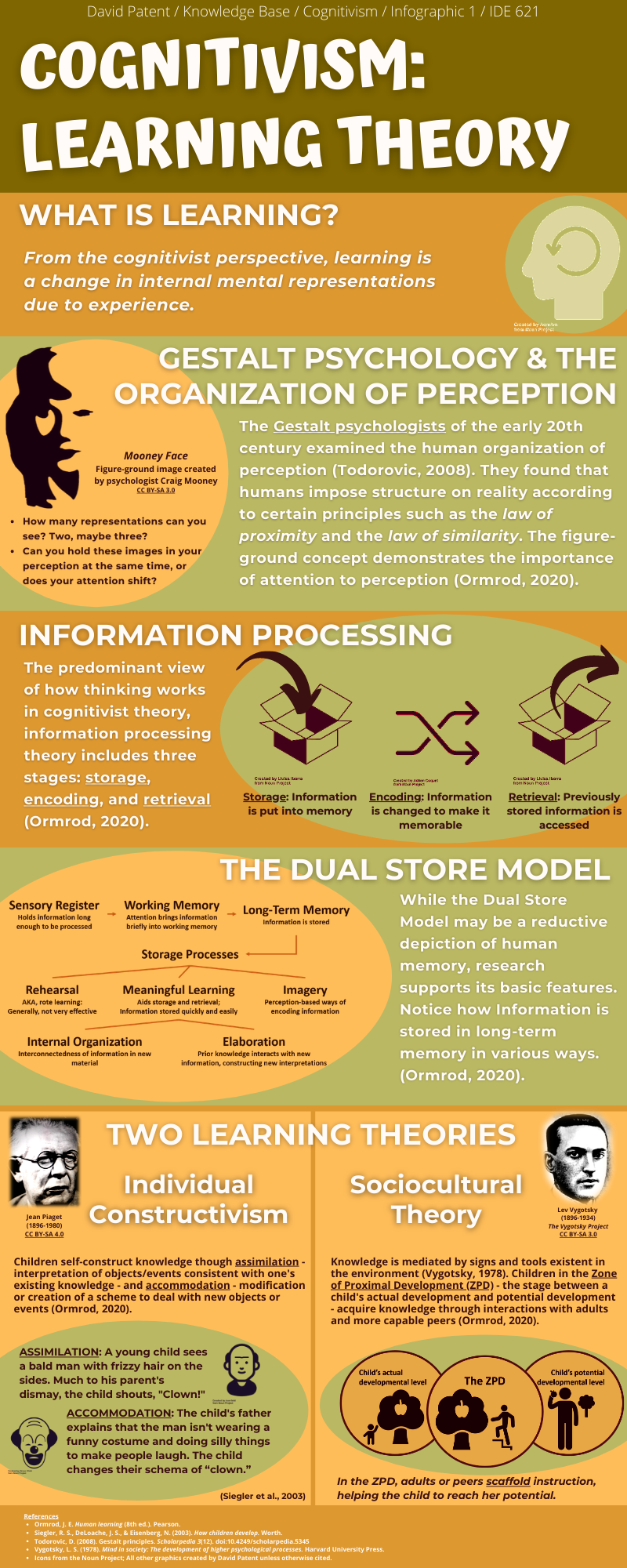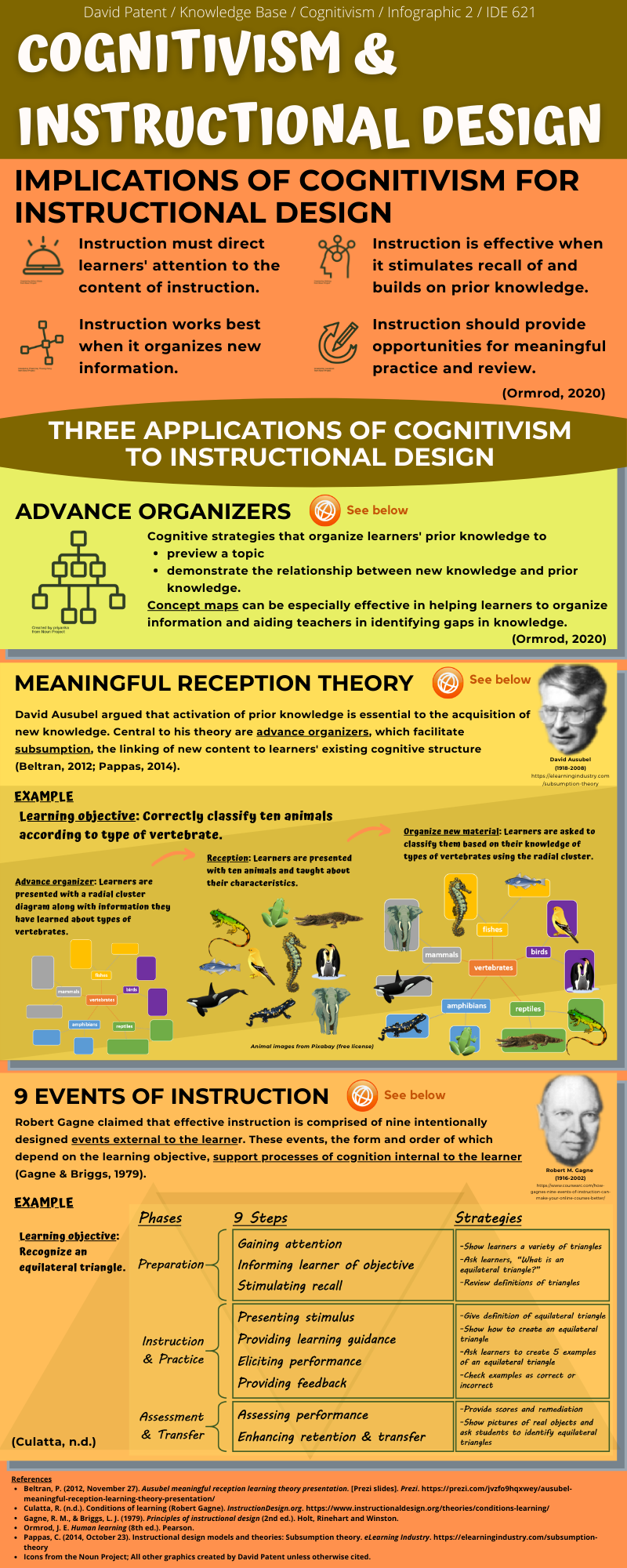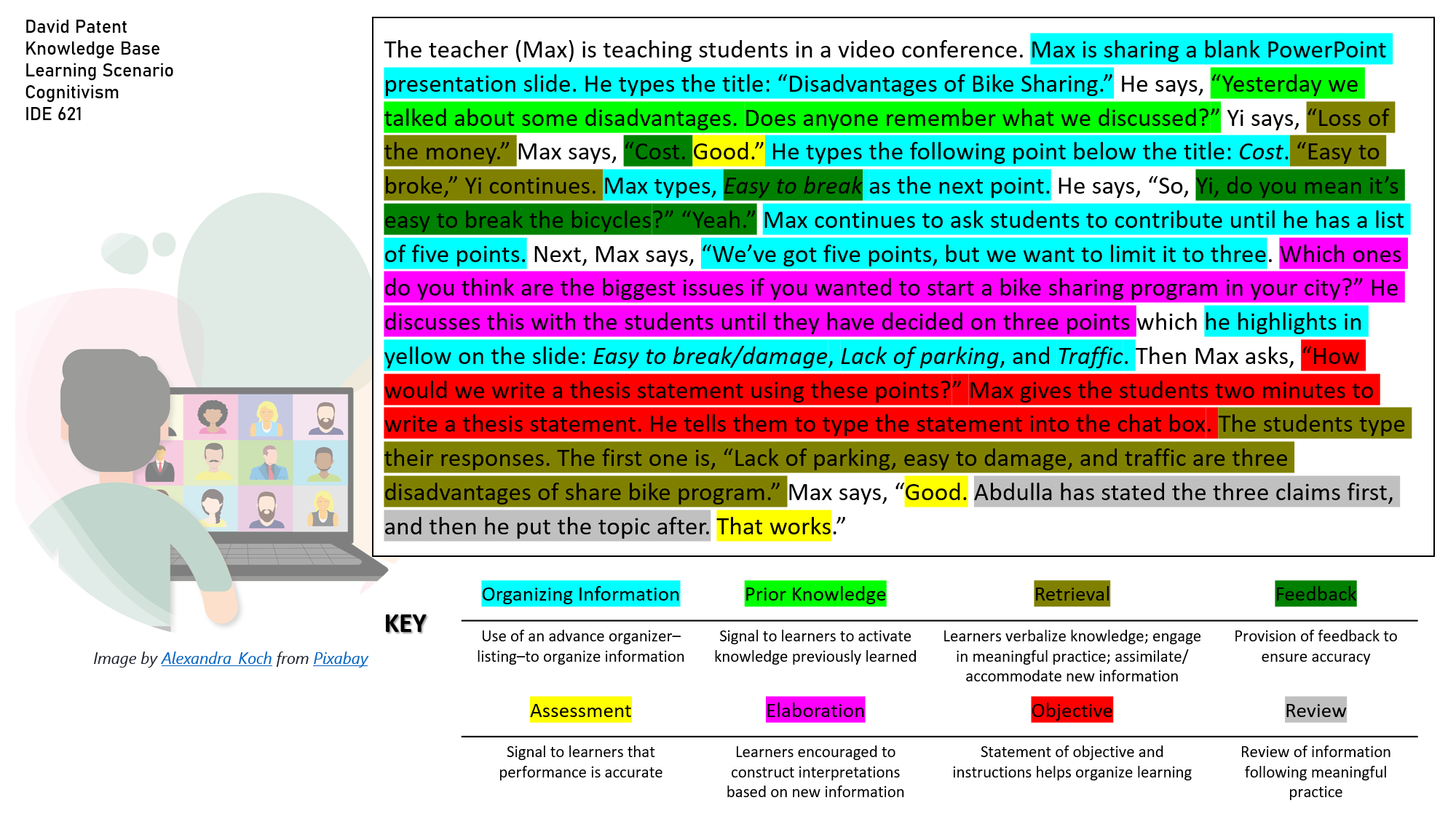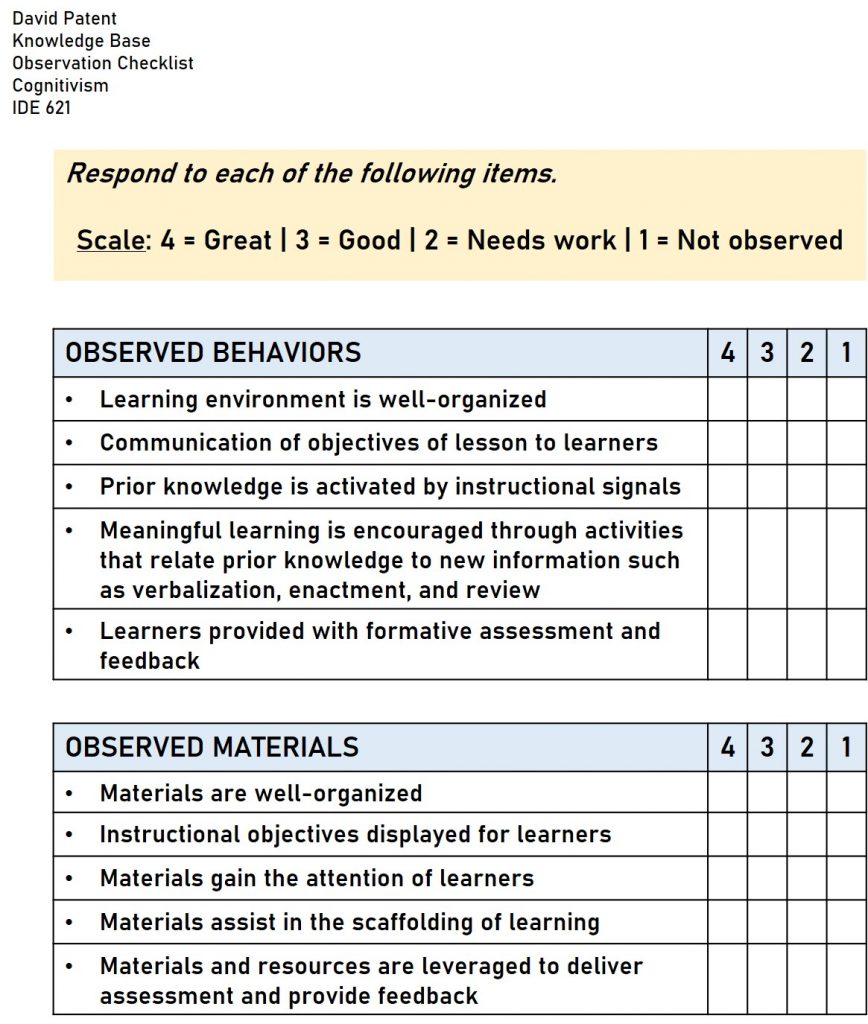David Patent – IDE 621 – Principles of Instruction and Learning – Fall 2020
Infographic 1: Learning Theory

Infographic 2: Instructional Design


- Advance Organizers – In this video, students in Kristen Baker’s ESL class use the iPad application Padlet to create graphic organizers to interpret the elements of a story.
- Meaningful Reception Theory – In this video, teachers discuss the application of Ausubel’s theory of meaningful reception to music education.
- 9 Events of Instruction – In this video, Gagne’s 9 Events of Instruction are demonstrated in an amusing example of a learner preparing for a public performance.
Learning Scenario

Observation Checklist

Reflection
Cognitive theory was much more familiar to me than behaviorism prior to taking this course and creating the knowledge base, but I lacked a comprehensive picture of the fundamental principles of cognitivism, particularly the dual storage model and Jean Piaget’s theory of Individual Constructivism. In my classroom teaching practice, Lev Vygotsky’s concept of the Zone of Proximal Development has played an important role in my selection of instructional strategies for at least the past decade. For example, in teaching English as a Second Language to mixed proficiency groups, grouping students of differing proficiency to complete communicative tasks makes a lot of sense. Learners who are less proficient benefit from the expertise of more capable peers, while more capable peers solidify their expertise – or encode knowledge and skills more deeply – through verbalization. Peer review exercises may also serve a similar function.
For me, studying Robert Gagne’s 9 Steps of Instruction has had an immediate impact on my work. Currently, I am designing a series of asynchronous modules for an English for Academic Purposes course that will be delivered in the Spring 2021 semester to students abroad. I find that the 9 Steps are an extremely useful guide when designing each unit of instruction, providing a flexible but comprehensive framework for selecting content, communicating objectives, choosing instructional strategies, and creating assessments.
In terms of philosophical orientation, social learning theory fits better with my ontological and epistemological beliefs; however, as social learning theory itself demonstrates, cognition – or perceptions – are a critical aspect of the learning process. While the notion that changes in individual mental representations are at the heart of learning is incompatible with my perspective, it is clear that cognitive processes are a crucial aspect of learning and require the attention of teachers and instructional designers alike.

